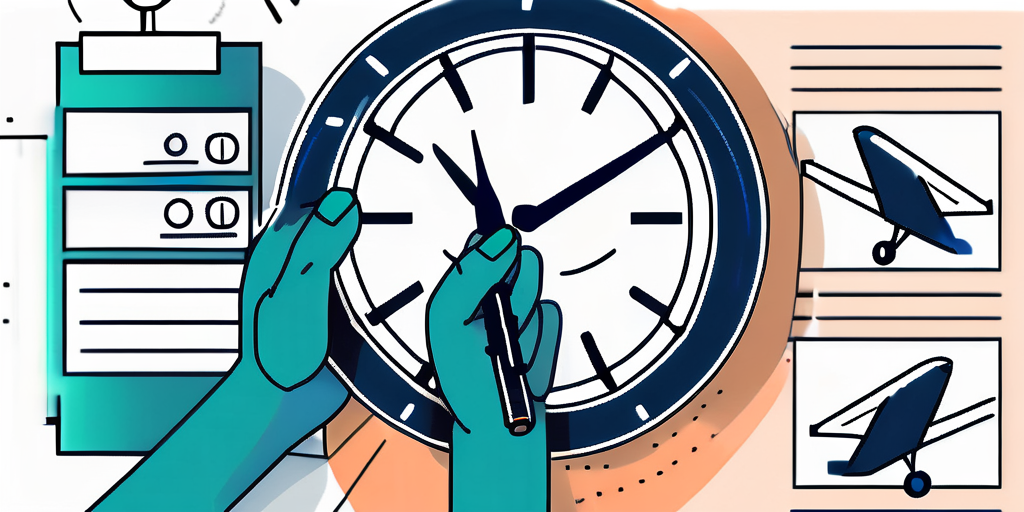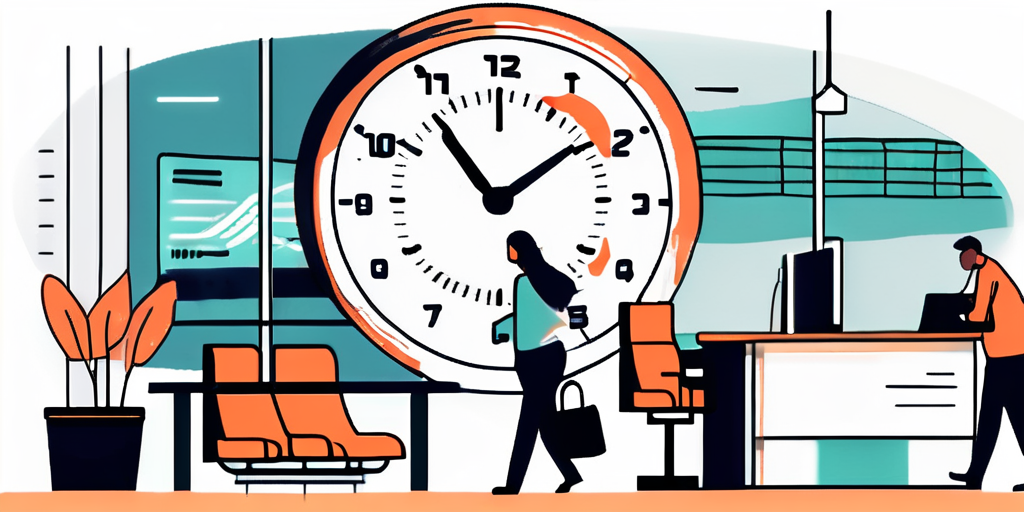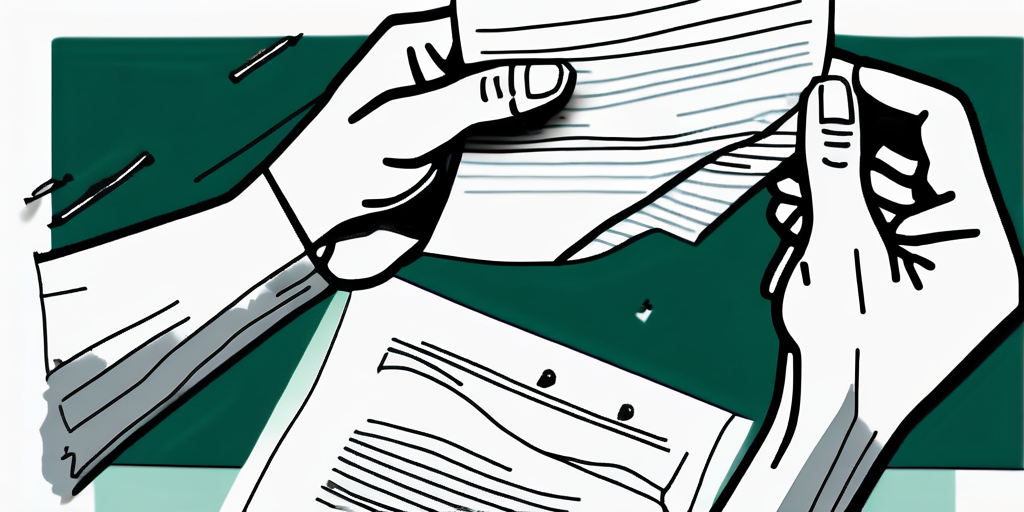How to Make a Successful Flight Delay Claim
Delayed flight? Find out how to file a claim for compensation. Understand the requirements and steps involved in the process.
Flight delays can be incredibly frustrating, causing disruption to travel plans and wasting precious time. However, it's important to know that you have rights as a passenger when faced with such situations. Understanding these rights and knowing the steps to make a successful flight delay claim can help you get the compensation you deserve. In this article, we will guide you through the process of making a successful flight delay claim, from understanding what constitutes a flight delay to seeking legal assistance if needed.
Understanding Flight Delay Claims
What Constitutes a Flight Delay?
A flight delay is generally defined as a situation in which a flight arrives at its destination later than the scheduled time. It can be caused by a variety of factors such as adverse weather conditions, technical issues with the aircraft, or strikes. Each airline may have its own specific policy on what constitutes a flight delay, so it's important to check the terms and conditions of your ticket or contact the airline directly to understand their guidelines.
Adverse weather conditions can range from heavy rain and thunderstorms to snowstorms and hurricanes. These weather events can lead to flight delays as airlines prioritize passenger safety above all else. Technical issues with the aircraft can include anything from mechanical failures to computer malfunctions. Airlines have strict maintenance protocols in place to ensure the safety of their passengers, and if any issues are detected, the flight may be delayed until the problem is resolved. Strikes, whether by airline staff or air traffic controllers, can also cause flight delays as operations are disrupted and flights are rescheduled.
Your Rights as a Passenger
Passengers have certain rights when faced with a flight delay. These rights are outlined in the passenger rights regulations in many countries, such as the EU Regulation 261/2004. The regulations protect passengers by entitling them to compensation, assistance, and, in some cases, a refund or re-routing. These rights apply to both domestic and international flights, as long as certain conditions are met.
Under EU Regulation 261/2004, passengers are entitled to compensation if their flight arrives at their destination more than three hours late, unless the delay was caused by extraordinary circumstances that were beyond the airline's control. Extraordinary circumstances can include things like natural disasters, political unrest, or security threats. It's important to note that the burden of proof lies with the airline to demonstrate that the delay was due to such circumstances.
The amount of compensation you may be entitled to depends on the distance of your flight and the length of the delay. For example, if you are flying within the EU and your flight is delayed for more than three hours, you may be entitled to compensation ranging from €250 to €600, depending on the distance of the flight. If your flight is delayed for more than five hours, you may also have the option to choose between a full refund of your ticket or an alternative flight to your destination.
- Your flight needs to be delayed by at least 5 hours at departure to be eligible for a flight delay refund.
- Your flight must be delayed by at least 3 hours at arrival to be eligible for flight delay compensation.
- For a delay at departure of at least 2 hours, the airline must provide you with a meal (or meal voucher), refreshments, access to wi-fi, and 2 phone calls.
- For a significant delay at departure (5 hours or more), the airline must provide you with a hotel room and transportation between the hotel and the airport.
With our free flight delay compensation calculator, learn whether you're eligible for compensation and how much the airline may owe you, in just 2 minutes.
Preparing to Make a Flight Delay Claim
Necessary Documentation for a Claim
Before making a flight delay claim, it's important to gather all the necessary documentation to support your case. This may include your ticket or boarding pass, any communication you had with the airline regarding the delay, and any relevant receipts for expenses incurred as a result of the delay, such as accommodation or meals.

Having this documentation ready will make it easier for you to provide evidence when submitting your claim and increase your chances of a successful outcome.
Imagine this: you're at the airport, waiting for your flight to take off. Suddenly, an announcement is made that your flight will be delayed for several hours. Frustration sets in, and you start to wonder about the inconvenience caused and the expenses you might incur as a result of this delay. This is where having the necessary documentation becomes crucial.
Your ticket or boarding pass serves as proof that you were indeed scheduled to be on that flight. It shows the airline, without a doubt, that you were affected by the delay. Additionally, any communication you had with the airline, such as emails or text messages, can be used as evidence to support your claim. These exchanges may contain important details about the delay, such as the reason behind it or any compensation offered.
Furthermore, keeping track of any expenses you incurred due to the delay is essential. Whether it's the cost of a hotel room for an unexpected overnight stay or the price of a meal at the airport, these receipts will help demonstrate the financial impact the delay had on you.
How Long Does It Take To Get Your Flight Delay Compensation ?
The time it takes to receive flight delay compensation can vary depending on several factors, including the airline's policies, the complexity of the claim, and any applicable regulations. Here's a general overview of the timeline:
Initial Claim Submission: After submitting a claim for flight delay compensation, the airline typically acknowledges receipt of the claim and may provide an initial response within a few days to a few weeks.
Processing Time: The airline will review the claim to assess its validity and determine if compensation is owed based on the circumstances of the delay and any applicable regulations. This process can take anywhere from a few weeks to several months, depending on the airline's internal procedures and workload.
Communication with Passengers: Throughout the claims process, the airline may communicate with the passenger to request additional information or documentation, provide updates on the status of the claim, or offer a settlement.
Payment: If the airline approves the compensation claim, payment is typically issued to the passenger within a reasonable timeframe, which can vary depending on the airline's policies and payment processing procedures. In some cases, compensation may be provided in the form of vouchers, miles, or cash reimbursement.
Overall, the time it takes to receive flight delay compensation can range from a few weeks to several months, with the exact timeline depending on various factors. Passengers should follow up with the airline if they haven't received a response within a reasonable timeframe and seek clarification on the status of their claim.
Steps to Make a Flight Delay Claim
Contacting the Airline
The first step in making a flight delay claim is to contact the airline directly. You can do this by phone, email, letter or through their website. Explain the situation, providing details such as your flight number, date, and the length of the delay. It's important to remain calm and polite during this communication, as it will set the tone for your claim.
You can find right here a free template of a compensation letter to get what you deserve.

Ask the airline what their procedure is for making a claim and inquire about the required documentation. They may provide you with a claim form that you need to fill out and submit.
Filling Out the Claim Form
Once you have received the claim form from the airline, it's important to fill it out accurately and completely. Provide all the requested information, attach any supporting documentation, and double-check for any errors or omissions. Be thorough and include any additional relevant details that may strengthen your claim.
Submit A Claim
Remember to keep a copy of the completed claim form and any supporting documentation for your records.
Dealing with Claim Rejections
Reasons for Claim Rejection
It's possible that your flight delay claim may be rejected by the airline. There can be several reasons for this, including the airline arguing that the delay was caused by extraordinary circumstances that were beyond their control. Such circumstances may include severe weather conditions, air traffic control restrictions, or political unrest.

If you feel that your claim has been wrongly rejected, don't be discouraged. There are steps you can take to appeal the decision and potentially have your claim reconsidered.
How to Appeal a Rejected Claim
If your claim is rejected, the first step is to carefully review the reasons provided by the airline for the rejection. Look for any inconsistencies or errors in their argument. If you believe that the airline's decision was unjust, you can appeal the rejection. Most airlines have an appeal or complaint process that you can follow.
When appealing, make sure to provide any additional evidence or information that supports your case. This could include witness statements, photographic evidence, or expert opinions. Remain polite and professional throughout the process and clearly explain why you believe the decision should be reconsidered.
Seeking Legal Help for Flight Delay Claims
When to Consider Legal Assistance
In some cases, seeking legal assistance for your flight delay claim may be necessary, especially if you have tried to resolve the matter directly with the airline but have been unsuccessful. Legal professionals specializing in flight delay claims have the knowledge and experience to navigate the complexities of the legal system and advocate for your rights.
If your claim involves multiple passengers or a significant amount of compensation, or if you simply prefer to have legal representation, it may be worth considering hiring a lawyer to assist you.
Choosing the Right Legal Professional for Your Claim
When choosing a legal professional to help with your flight delay claim, it's important to consider their expertise, experience, and track record. Look for a lawyer or law firm that specializes in aviation law or has a proven track record of successfully handling flight delay claims.
Additionally, consider their fee structure and whether they offer a no-win, no-fee arrangement, which means you only pay if your claim is successful.
By understanding what constitutes a flight delay and knowing your rights as a passenger, you are already one step closer to making a successful flight delay claim. Collecting all necessary documentation, submitting your claim in a timely manner, and being prepared to deal with claim rejections will further increase your chances of success. And if all else fails, seeking legal assistance can help you navigate the complexities of the legal system and ensure that your rights as a passenger are protected. Good luck with your flight delay claim!
Ready to Claim Your Compensation?
Don't let flight delays set you back. With ClaimCompass, you can easily claim up to 600€ for your travel disruptions. Our expertise in EU Regulation 261/2004 and our commitment to air passenger rights mean we've got you covered every step of the way. Use our compensation calculator to check your eligibility for free and let us handle the hassle. Remember, there's no fee unless we succeed, so submit your claim today and let us fight for the compensation you deserve.
How long does a flight have to be delayed to claim compensation?
In Europe, passengers may be entitled to compensation for flight delays under EU Regulation 261/2004. The duration of the delay required for compensation depends on the distance of the flight and certain other factors:
- Flights of 1,500 kilometers or less: Compensation may be due if the delay is over 2 hours.
- Flights between 1,500 and 3,500 kilometers: Compensation eligibility typically starts for delays exceeding 3 hours.
- Flights over 3,500 kilometers between an EU and a non-EU airport: Compensation may be owed if the delay exceeds 4 hours.
However, it's important to note that compensation may not apply if the delay is caused by extraordinary circumstances beyond the airline's control, such as severe weather or air traffic control issues. Passengers should review the specific regulations and contact the airline for clarification on compensation eligibility in case of a delay.
What is 2 hour rule for flight delay compensation?
The "2-hour rule" for flight delay compensation generally refers to a guideline or threshold used by some airlines or jurisdictions to determine eligibility for compensation in case of flight delays. However, it's important to note that this rule can vary depending on the specific circumstances, airline policies, and regulations in place.
In some cases, passengers may be eligible for compensation if their flight is delayed by 2 hours or more, particularly for shorter flights or under certain regulations. For example, under EU Regulation 261/2004, passengers departing from or arriving at an EU airport on an EU carrier may be entitled to compensation for delays of 2 hours or more, depending on the flight distance.
However, the 2-hour rule is not universally applied, and compensation thresholds can vary by airline, jurisdiction, and the reason for the delay. Passengers should review the applicable regulations and the airline's policies to understand the criteria for compensation eligibility in case of a flight delay. If in doubt, passengers can contact the airline directly for clarification on their compensation policies.
Can I claim insurance if my flight is delayed?
You may be able to claim compensation through travel insurance if your flight is delayed, depending on the terms and coverage of your policy.
Learn all about flight delay insurance here.
Here's how it typically works:
- Review Your Policy: Check your travel insurance policy to understand what coverage it provides for flight delays. Policies vary, but many include coverage for trip delays due to reasons such as weather, mechanical issues, or airline strikes.
- Document the Delay: Keep records of your flight details, including the flight number, departure and arrival times, and the duration of the delay. You may need this information when filing a claim with your insurance provider.
- Submit a Claim: Contact your insurance provider to initiate the claims process. You will likely need to provide documentation of the delay, such as a letter from the airline confirming the delay and any expenses you incurred as a result.
- Follow the Claims Process: Follow the instructions provided by your insurance provider for submitting your claim. This may involve filling out a claim form, providing supporting documentation, and cooperating with any requests for additional information.
- Wait for Processing: Once you've submitted your claim, the insurance company will review it and process your claim according to the terms of your policy. This process can take some time, so be patient while waiting for a resolution.
- Receive Compensation: If your claim is approved, you will receive compensation from your insurance provider according to the terms of your policy. This may cover expenses such as meals, accommodations, or other costs incurred due to the delay.
It's important to review your travel insurance policy carefully and understand what coverage it provides for flight delays before you need to file a claim. If you have any questions about your coverage or the claims process, don't hesitate to contact your insurance provider for assistance.
The duration a flight can be delayed before it is cancelled varies depending on airline policies, airport operations, and the reason for the delay. Airlines typically have their own thresholds for cancelling flights, considering factors such as runway availability and passenger convenience. There's no universal timeframe for cancellation, but it may occur if the delay is prolonged, the issue causing the delay cannot be resolved quickly, or if passengers face significant inconvenience. Ultimately, airlines make the decision to cancel a flight based on safety, operational considerations, and passenger welfare. Passengers should stay informed about their flight status and communicate with the airline for updates during delays.
